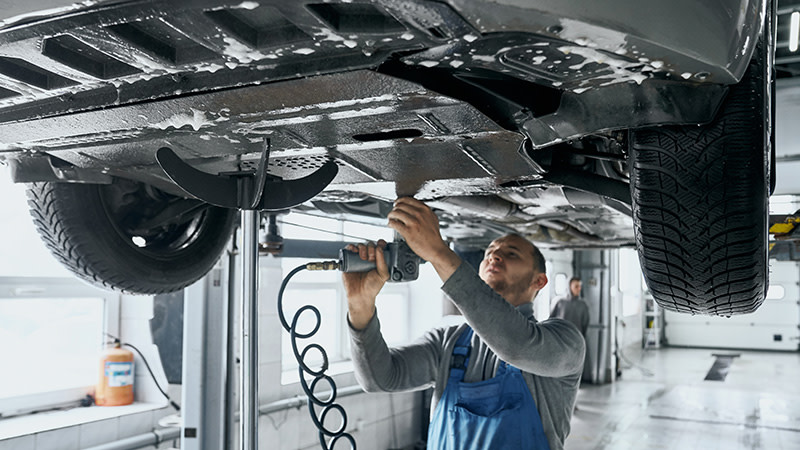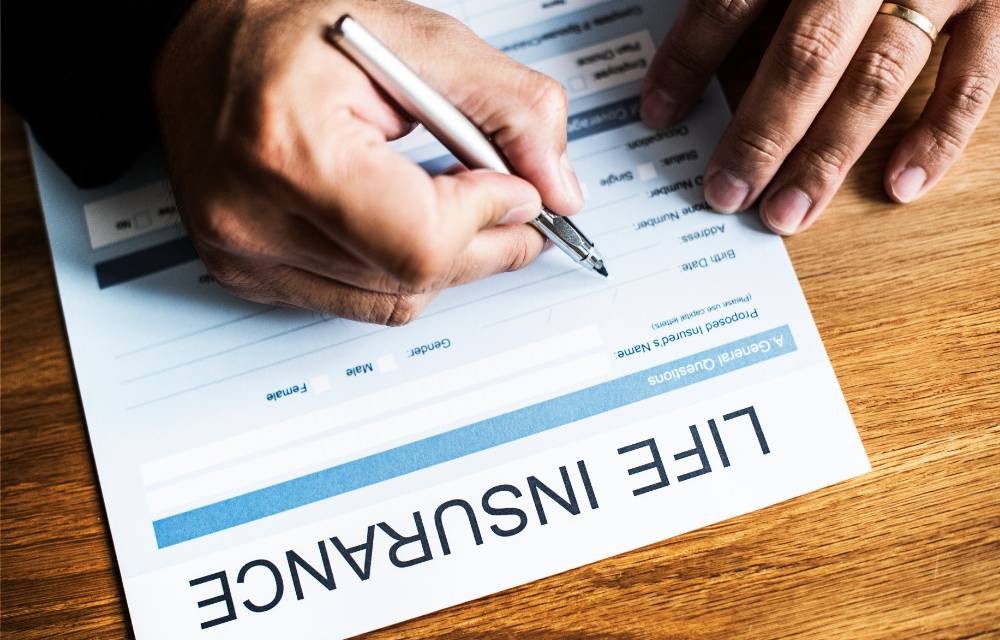
Car Insurance Glossary: Key Terms to Know
TABLE OF CONTENTS
Questions:
What is the difference between actual cash value and new-car replacement value?
Do I pay a deductible if the insurance company deems my car a total loss?
Who knew you had to learn another language to manage your car insurance? You might survive the quoting and buying process without some extra education, but the language gets pretty dense once you file a claim.
Sadly, skipping over the big words in an email from your claims adjuster can lead to some bad surprises. A common example is confusing "actual cash value" for "replacement value" when the insurance provider decides to total your car.
Avoid those tough misunderstandings by looking up those unknown terms right away. This handy car insurance glossary will help.
KEY TAKEAWAYS
- 1
Don't skip over terms you don't recognize in car insurance documentation or in communications from a claims adjuster.
- 2
You can use a binder as temporary proof of insurance coverage if your ID cards aren't yet available.
- 3
If you are at-fault in an accident, you are financially responsible for resulting property damage. You may or may not be responsible for medical bills.
If you know what you're looking for, jump right to the term you need:
Accident forgiveness
Accident forgiveness is an auto policy feature that prevents your insurance premiums from rising after an at-fault accident.
Some carriers charge for accident forgiveness, some offer it for free, and some don’t offer it at all. Also, your carrier may exclude some types of accidents from forgiveness.1 Be sure to read the fine print, especially if you must pay for this feature. It may also be worth comparing insurer accident forgiveness programs.
Generally, you can’t get accident forgiveness unless you have a clean driving record.
Actual cash value (ACV)
ACV is the market value of your car (prior to an accident or theft). Usually, ACV determines your payout if an insurance company declares your car a total loss.
Notably, ACV deducts for depreciation. This means your payout will be less than what it'd cost you to replace your car with a new model.2
Adjuster
An adjuster is the insurance company representative who evaluates and settles your claim. They are the one requesting details about your claim and whom you work with to reach a satisfactory settlement.
At-fault
At-fault can describe an accident that a driver caused, as in "at-fault accident." The term can also describe a driver who caused the accident, as in "at-fault driver."
Adjusters normally decide who is at-fault in an accident. The determination of fault establishes who is financially responsible for the resulting property damages.3 Medical expenses can work differently, however. In some states, drivers use PIP coverage or MedPay to pay for their own medical expenses, regardless of fault.
Binder
A car insurance binder is temporary coverage that applies while your provider underwrites your full policy. You can use the binder document as immediate proof of insurance if your official insurance ID cards aren't available yet.
The binder expires quickly, usually within 30 days. Before that expiration date, your carrier will issue your policy, complete with any changes or exclusions that come up during underwriting.
Bodily injury liability insurance
Bodily injury liability insurance helps pay for the medical expenses of someone who's injured in an accident you caused. This line of coverage may also pay for the other person's legal fees, loss of income, pain and suffering, or funeral costs.4
Carrier
Your carrier is your insurance provider.
Certificate of financial responsibility (CFR or SR-22)
A SR-22 is a document your insurance carrier files with your state. The form certifies that you carry your state's required minimum car insurance.
You only need your carrier to file an SR-22 if your state informs you of the requirement. This generally happens only after severe traffic violations or license suspensions.5
Clean driving record
A clean driving record is a term used for drivers who do not have any car accidents or moving violations (speeding, reckless driving, etc) in a given amount of time, typically three to five years, depending on the insurer. Furthermore, what qualifies as a mark against your record can also vary by state and insurance company.
Maintaining a clean driving record has many benefits and fortunately, there are a number of ways to clean your driving record.
Collision insurance
Collision coverage is an insurance that helps pay for repairs to your car if it's damaged in a crash. A collision can mean an impact with many things: another vehicle, an object, or the ground -- say, if the car rolls over but doesn't hit anything else.6
Collision is optional in all states relative to state insurance requirements, but an auto lender will require it.
Collision insurance will have a deductible, though collision deductible waivers are sometimes available.
Comprehensive insurance
Comprehensive coverage helps pay for repairs to your car if it's damaged by something other than a collision. Theft and vandalism claims fall under comprehensive insurance, as do accidents with animals and weather-related damage.
Like collision coverage, comprehensive insurance is optional in every state, but auto lenders generally require it.7
Compulsory auto insurance
Compulsory auto insurance is a fancy term for your state's minimum car insurance requirements.8
Damages
In a legal sense, damages are funds that one person legally must pay another person. Courts and arbitrators award damages.9
Declarations page
The declarations page of your auto policy summarizes your coverage. It should list the insured (that's probably you and any other members of your household), the vehicles on the policy, policy effective dates, and other details.10
Diminished value
Diminished value is the lower value of your car following accident-related repairs.
Even though your repair shop has fixed your car after an accident, it may still be worth less than it was prior to the accident. This is because the accident makes the car less valuable to buyers vs. a similar vehicle that hasn't had an accident.11 Hence, the car has a diminished value.
Endorsement
Car insurance endorsements are additions to your policy that adds or changes coverage. Optional coverages and features like gap insurance or new-car replacement insurance are endorsements.12 Another name for an endorsement is a rider.
If you're buying insurance online, you should see your carrier's available endorsements during the quoting process.
Gap insurance
Because cars depreciate quickly, you can easily end up owing more on your loan or lease than your car is worth. That's problematic if you wreck your car beyond repair or someone steals it. In a total loss situation, the insurance company only pays out the car's actual value – less your deductible if you are at-fault. That may not be enough to pay off your loan.
Gap insurance pays off your auto loan or lease if your payout after a total loss falls short.
Indemnification
Indemnification, generally, refers to compensation for a loss. In auto insurance, indemnification is when your insurer helps you pay for covered losses.13
Medical payments coverage (MedPay)
MedPay is optional coverage that helps pay for medical bills following a car accident. Your MedPay policy applies to you, passengers riding in your car, or pedestrians you may hit. If a vehicle injures you -- say, while you're walking or riding a bike -- your MedPay also covers those medical costs.14
Many drivers use MedPay as a supplement to their high-deductible health insurance.
No-fault insurance
No-fault insurance is another name for Personal Injury Protection (PIP).15 Your PIP coverage helps pay for medical expenses and lost wages for you and your passengers after an accident, regardless of fault.16
Personal injury protection
PIP is another name for no-fault insurance. Your PIP coverage helps pay for medical expenses and lost wages for you and your passengers after an accident, regardless of fault.17
Some states require PIP. In other states, it's optional or not available at all.
Property damage liability insurance
Property damage liability insurance pays for repairs to someone else's property (including a car) that result from an accident you caused. Your carrier will only pay damages up to the policy's stated limit. Any costs above that limit are your responsibility.
This coverage has no deductible.
Almost every state requires a minimum amount of property damage liability insurance.18
Replacement value new car
New-car replacement value is an optional feature that increases your payout in a total loss situation. Normally, the total loss payout is ACV or the market value of your vehicle. With new-car replacement value, your carrier pays out enough for you to buy the latest model of your car (less your deductible).19
New-car replacement value isn't universally available and the terms vary from one carrier to the next. Generally, as the name implies, this feature is only available for new cars.
Subrogation
Subrogation is a process for going after at-fault parties to pay for damages they caused.
In practice, subrogation works like this. Someone hits you and damages your vehicle. Normally, that driver's insurance should pay for your repairs. If that doesn't happen, your insurance provider may cover the repairs under your collision insurance. Then, your provider will file a subrogation claim with the other insurance company. The claim seeks reimbursement for the repair costs including your deductible.20
Totaled or total loss
Your carrier will deem your car a total loss if the repair costs are too high relative to the car's value. Rather than pay for repairs, the insurance company will reimburse you for the car’s actual cash value.
If you are at-fault, the insurance company lowers the ACV payout by your deductible. If another driver is at fault and that driver's insurance carrier pays the claim, you won't have a deductible.
- Hunt, J. (2022, May 4). Accident forgiveness. The Balance. Retrieved August 19, 2022, from https://www.thebalance.com/accident-forgiveness-1969982
- Brozic, J. (2021, November 9). Actual cash value: How it works for car insurance. Kbb.com. Retrieved August 19, 2022, from https://www.kbb.com/car-advice/insurance/actual-cash-value/
- Lerner and Rowe Injury Attorneys. (2021, September 7). What does no-fault state mean? Lerner and Rowe Injury Attorneys. Retrieved August 19, 2022, from https://lernerandrowe.com/no-fault-insurance-states/
- Liberty Mutual. (n.d.). Bodily injury liability insurance: What is it? Liberty Mutual. Retrieved August 19, 2022, from https://www.libertymutual.com/vehicle/auto-insurance/coverage/bodily-injury-liability
- Allstate. (n.d.). What is SR-22 insurance and what does it do? Allstate. Retrieved August 19, 2022, from https://www.allstate.com/resources/car-insurance/what-is-sr22-insurance
- Brozic, J. (2021, October 5). What is Collision Insurance? Kbb.com. Retrieved August 19, 2022, from https://www.kbb.com/car-advice/insurance/what-is-collision-insurance/
- Progressive. (n.d.). What is comprehensive insurance? Progressive. Retrieved August 19, 2022, from https://www.progressive.com/answers/comprehensive-insurance/
- Kagan, J. (2021, May 19). Compulsory insurance. Investopedia. Retrieved August 19, 2022, from https://www.investopedia.com/terms/c/compulsory-insurance.asp
- Farlex. (n.d.). Damages. The Free Dictionary. Retrieved August 19, 2022, from https://legal-dictionary.thefreedictionary.com/damages
- Allstate. (n.d.). What is an auto insurance declarations page? Allstate. Retrieved August 19, 2022, from https://www.allstate.com/resources/car-insurance/car-insurance-declarations-page
- III. (n.d.). What is diminished value? III. Retrieved August 19, 2022, from https://www.iii.org/article/what-is-diminished-value
- Araujo, M. (2022, July 31). What is a car insurance endorsement? The Balance. Retrieved August 19, 2022, from https://www.thebalance.com/what-is-a-car-insurance-endorsement-5088485
- AARP. (n.d.). What is indemnification? The Hartford. Retrieved August 19, 2022, from https://www.thehartford.com/aarp/car-insurance
- Kagan, J. (2022, May 11). Medical payments coverage (MedPay) definition. Investopedia. Retrieved August 19, 2022, from https://www.investopedia.com/terms/m/medical-payments-coverage.asp
- Nationwide. (n.d.). What is no-fault insurance? Nationwide. Retrieved August 19, 2022, from https://www.nationwide.com/lc/resources/auto-insurance/articles/what-is-no-fault-insurance
- Progressive. (n.d.). Personal injury protection: What's no fault insurance? Progressive. Retrieved August 19, 2022, from https://www.progressive.com/answers/personal-injury-protection/
- Progressive. (n.d.). Personal injury protection: What's no fault insurance? Progressive. Retrieved August 19, 2022, from https://www.progressive.com/answers/personal-injury-protection/
- Rivelli, E. (2021, August 30). What is property damage liability? Bankrate. Retrieved August 19, 2022, from https://www.bankrate.com/insurance/car/property-damage-liability
- Green, L. (2019, March 22). New-car replacement insurance explained. NerdWallet. Retrieved August 19, 2022, from https://www.nerdwallet.com/article/insurance/new-car-replacement-car-insurance
- AARP. (n.d.). Auto subrogation . The Hartford. Retrieved August 19, 2022, from https://www.thehartford.com/aarp/car-insurance
TABLE OF CONTENTS


Trying to find the best insurance?
We'll help you find the policy that offers the best value for your situation.
Further Reading

Navigating the Digital Insurance Landscape Considerations
A look at the immense value and high customer lifetime potential within the insurance sector.
Read article

When is Term Life Insurance Worth it?
Decide if term life's advantages are worth it: compare whole vs term life insurance, assess top term providers, and delve into in-depth reviews.
Read article

Insurance Binder: Bridging Between Coverage and Confirmation
From car loans to rental properties, insurance binders are required in a variety of situations. Discover the ins and outs of these essential documents.
Read article

Haven Life Review: Providing Prudent and Protective Policies
Uncover the benefits and drawbacks of Haven Life's term insurance policies, along with eligibility details, pricing, and customer feedback..
Read article
Start Comparing Quotes
Search from our learning center to learn everything from how to easily switch your car insurance to the ins and outs of home insurance.
Fill out just one form and get multiple quotes!


